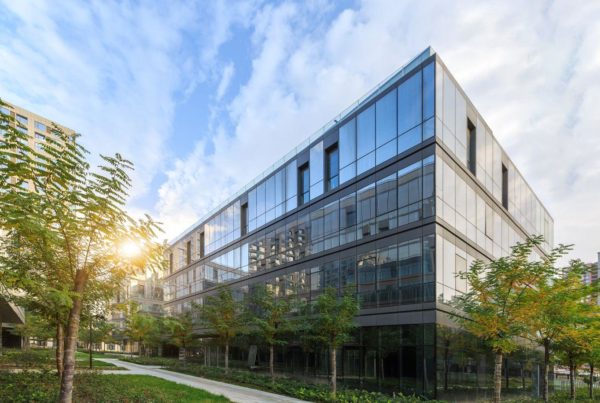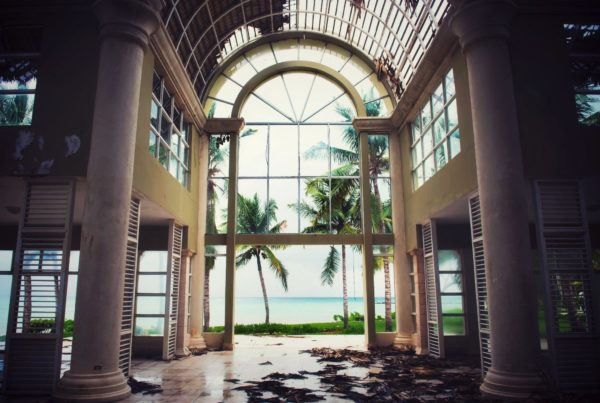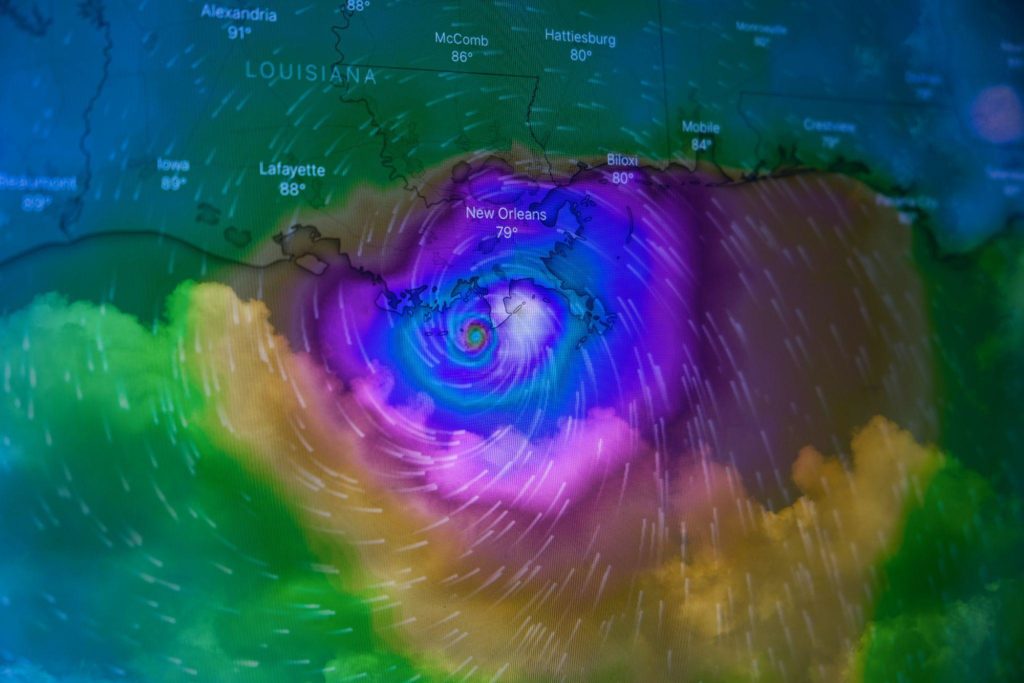 Now that we’re fully in the midst of the 2021 hurricane season, storm damage protection is a hotter topic than ever. If you’re looking to increase your property’s storm damage protection, but you’re not sure what the best route to go is, you’re not alone.
Now that we’re fully in the midst of the 2021 hurricane season, storm damage protection is a hotter topic than ever. If you’re looking to increase your property’s storm damage protection, but you’re not sure what the best route to go is, you’re not alone.
One common commercial storm damage mitigation barrier you might find mentioned frequently is something called a hurricane screen. But do you really know what hurricane screens are?
In this article, we’ll cover all the need-to-know details about these types of screens, as well as go over some great alternatives that do more than just prevent storm damage.
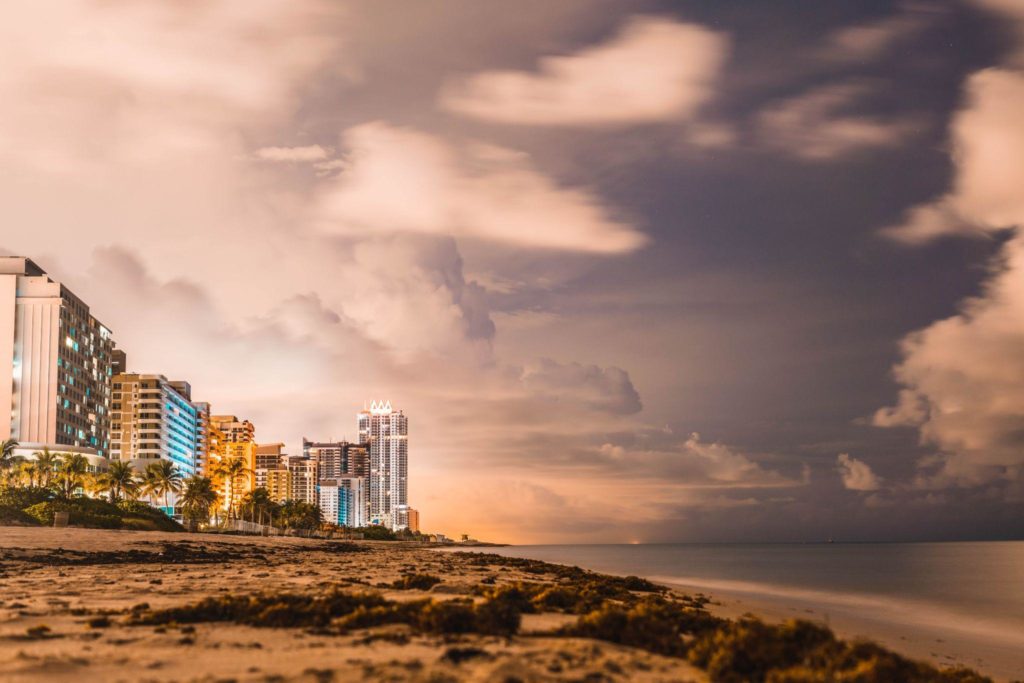
What Are Hurricane Screens and How Do They Work?
A hurricane screen, also known as hurricane fabric, is a piece of trampoline-like material that you stretch over glass doors and windows to keep debris and rain propelled by strong, hurricane-force winds out of your home.
These large pieces of mesh fabric are much stronger than standard door and window screens. They can also be stretched over other openings, such as carport entrances and porches.
Hurricane screens vs hurricane shutters
Hurricane screens are a popular alternative to hurricane shutters, but each storm damage mitigation solution has its pros and cons. Let's take a look at how these two common hurricane barriers compare below.
Pros of hurricane fabric
- Can install it with permanent or temporary mounting hardware
- Allows some natural light to filter through
- Doesn’t completely block visibility
- Easy to have custom-cut for a good fit
Cons of hurricane fabric
- Can’t put it in place at the last minute before a storm
- Debris can bounce off of it into other nearby objects
- Temporary-mount models require storage space
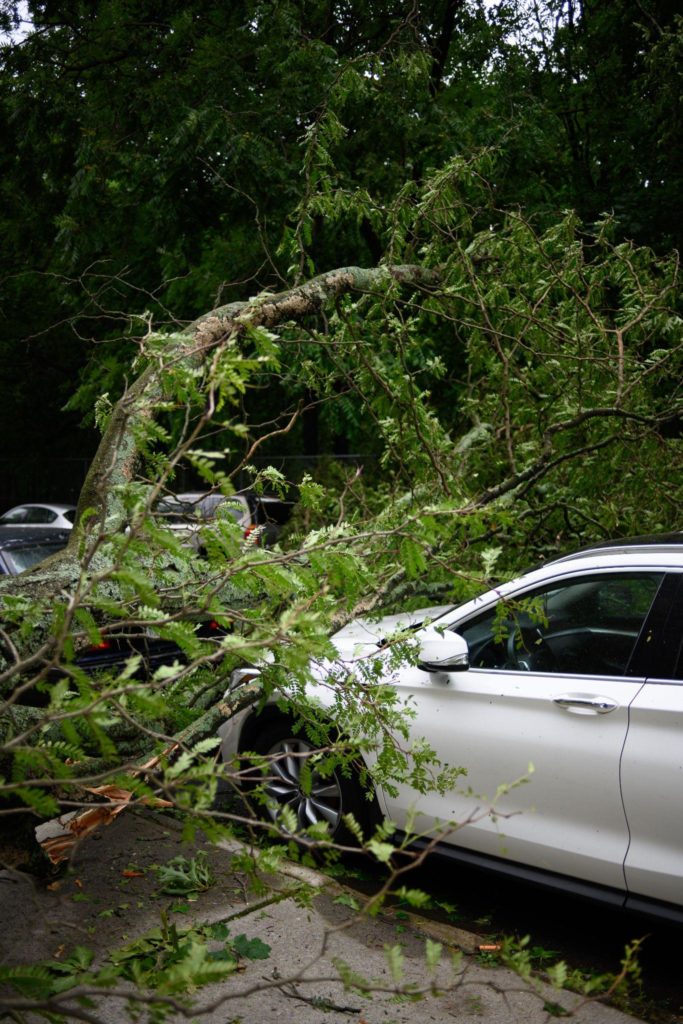
Pros of hurricane shutters
- Many visually attractive models available
- Easy to put into place at the last minute
- Can be electronically operated
- As strong as or stronger than board ups
Cons of hurricane shutters
- Require lots of permanent-mount hardware
- Require regular maintenance to keep them working
- Electronic components can fail or become stuck
- Completely block natural light and views
- Standard sizes may not be perfect fits for windows
Best Alternatives To Hurricane Screens
Now that you know more about hurricane fabric and how it compares to storm shutters, you might be wondering what other alternatives to board ups are out there?
Below, we’ll go over a couple of other commercial storm damage prevention solutions that might be an even better choice for you and your property.
Security screens
Security screens are different from hurricane screens, in that they are not designed for the sole purpose of mitigating storm damage. However, they can add storm protection to your doors and windows, in addition to boosting the overall security of your property.
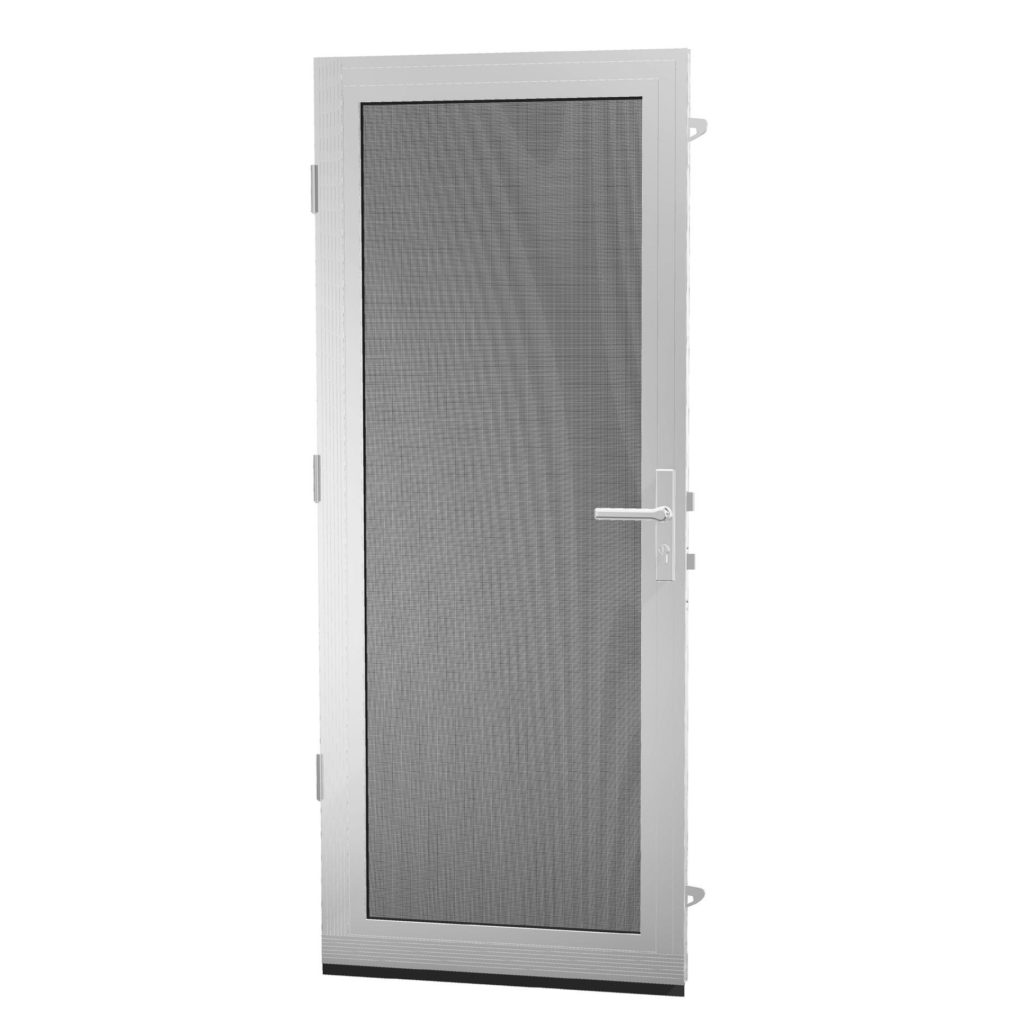
So, what exactly are security screens? Well, these are a type of window and door screen made from steel mesh. Unlike standard mesh bug screens, security screens provide a high level of impact resistance.
Security screens are also slashed- and scratch-resistant, providing forced entry protection and creating a barrier that keeps your furry friends inside, while still allowing you to keep doors and windows open for ventilation.
<iframe width="560" height="315" src="https://www.youtube.com/embed/NDyj5A9tNNA" title="YouTube video player" frameborder="0" allow="accelerometer; autoplay; clipboard-write; encrypted-media; gyroscope; picture-in-picture" allowfullscreen></iframe>
Keep in mind that security screens are not rated for hurricane protection, but they can be used in tandem with other impact mitigation solutions to achieve a very high level of protection against a full range of threats, both man-made and from mother nature.
Impact windows
When you want an alternative to hurricane shutters that is rated for storm damage protection, impact windows are the best option. The term “impact windows” can refer to a variety of security glazing products that can be retrofitted over your existing glass doors and windows to protect the glass from flying storm debris and other impacts.
That being said, there is one type of impact glass (spoiler: it’s not actually glass) that’s far superior to other options available on the market: polycarbonate security glazing. Polycarbonate is a type of plastic that is far more impact-resistant than any type of security glass out there.
The best part about using polycarbonate glazing shields for storm damage prevention is that it looks, feels, and functions just like traditional window glass. So, it doesn’t significantly change the appearance of your property, hurt its curb appeal, block out natural light, or inhibit views.
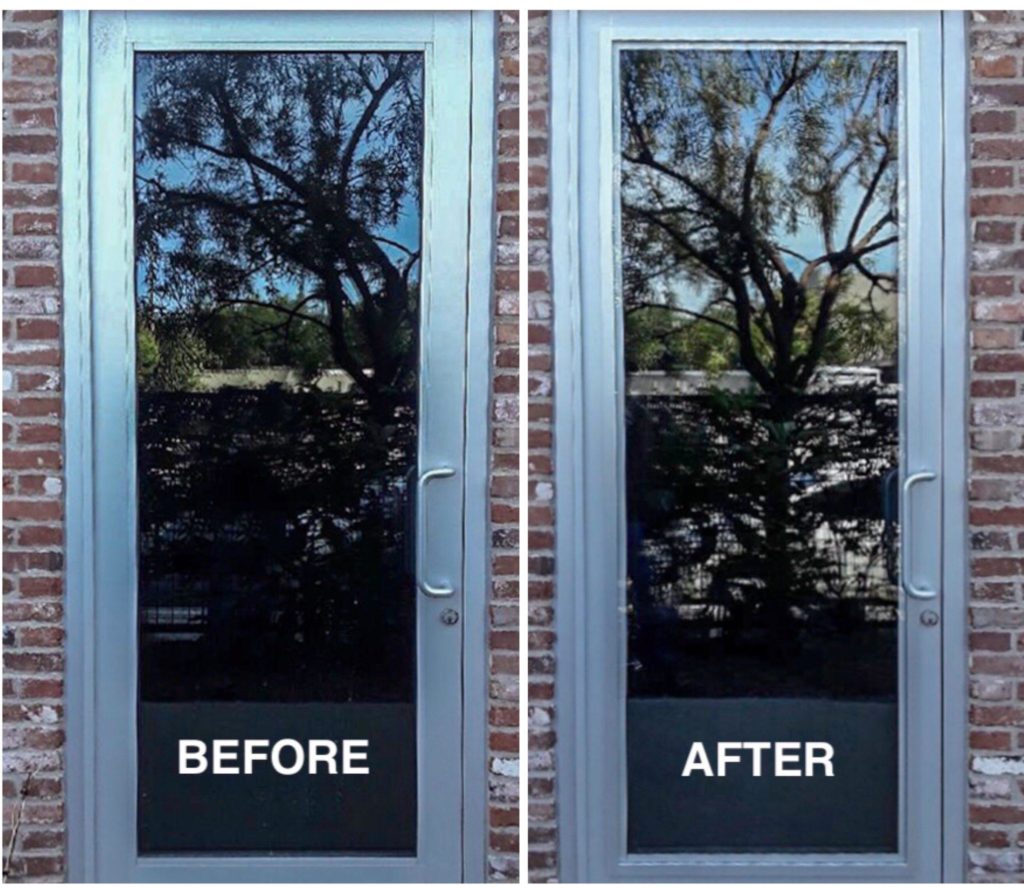
What polycarbonate does is create an invisible protective barrier that is virtually unbreakable, preventing your existing glass from shattering dangerously inwards and keeping your property sheltered from heavy rains and wind-borne storm debris.
Polycarbonate’s extreme impact resistance makes all the difference between weathering a storm with minimal damage and financial loss, and facing potentially devastating damage that requires expensive repairs after a hurricane or windstorm.
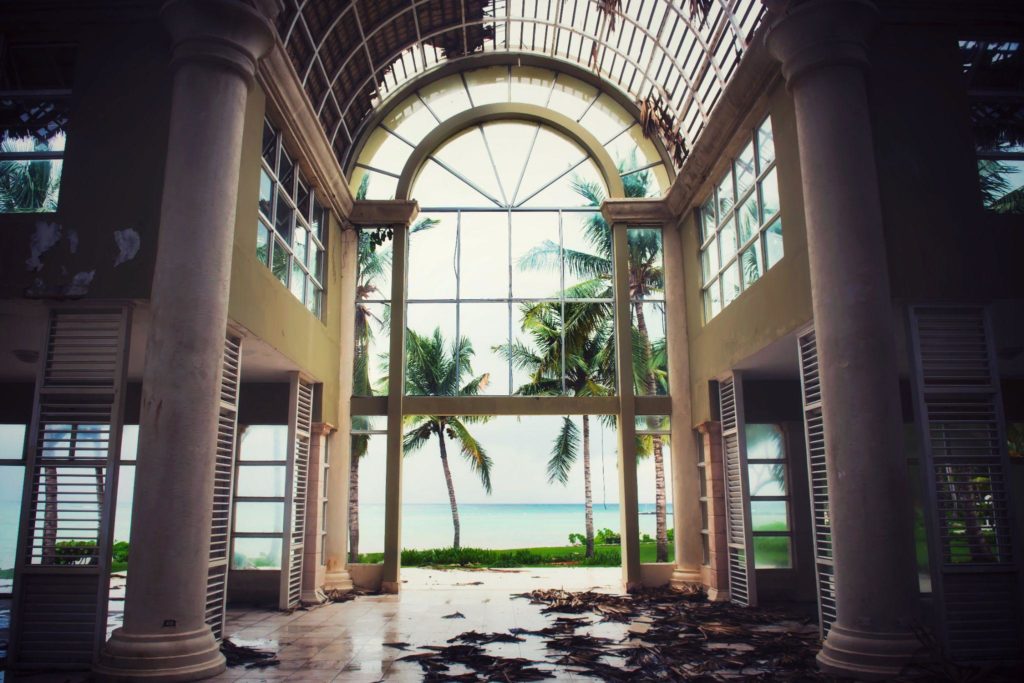
Besides being the ultimate commercial storm damage mitigation solution, polycarbonate also provides the highest level of security against forced entry, burglary, smash-and-grab theft, rioting, looting, vandalism, and more. Polycarbonate glazing shields are even available with ballistic resistance ratings for active shooter protection.
Can you use security screens and impact windows together?
Yes, in some cases you may be able to combine security screens and impact windows for maximum security and convenience.
For example, you could retrofit polycarbonate sheets over a sliding glass door to protect the glass, and install a security screen on the outside. That way, you can leave the door open for ventilation on hot days without leaving your building totally exposed to would-be intruders and other threats.
Conclusion
Hurricane screens and storm shutters are good alternatives to board ups for storm damage prevention, but they do have their downsides. They also don’t provide 24/7 protection against other security threats, such as forced entry.
When you want a comprehensive security solution for glass doors and windows, consider a security glazing retrofit and security screens.
Campbell offers fully custom security screens as well as the ArmorPlast® line of polycarbonate glazing shields from Riot Glass®. Contact us today to discuss your options and come up with the best solution for you, your property, and your budget.


